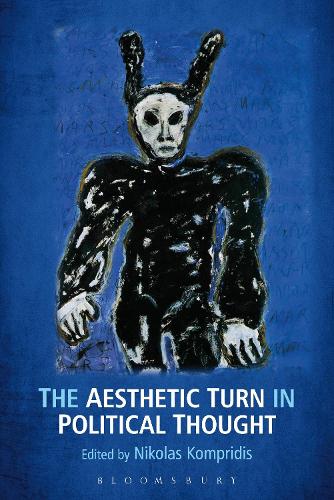
The Aesthetic Turn in Political Thought
(Hardback)
Available Formats
Publishing Details
The Aesthetic Turn in Political Thought
By (Author) Professor Nikolas Kompridis
Bloomsbury Publishing PLC
Bloomsbury Academic USA
5th June 2014
United States
Classifications
Tertiary Education
Non Fiction
Philosophy: aesthetics
320.01
Physical Properties
Hardback
328
Width 152mm, Height 229mm
664g
Description
The growing exploration of political life from an aesthetic perspective has become so prominent that we can now speak of an "aesthetic turn" in political theory. But what does it mean and why an aesthetic turn This collection of essays aims to answer such questions from a variety of perspectives, to think in a new way about the possibilities and weaknesses of democratic politics. The book first outlines the theoretical motivations and historical conditions that led to the turn to aesthetics. Essays then call attention to the presence of aesthetic themes and arguments in political theory as well as to parallels between theories of aesthetics and politics, revealing how much political theory can gain from making use of aesthetic modes of thought. They demonstrate that much of what is essential to democratic politics can in fact only be disclosed through aesthetic theorizing. A significant contribution to the contemporary debate in political theory, The Aesthetic Turn in Political Thought will appeal to all students interested in the interdisciplinary crossroads of aesthetic and politics.
Reviews
This is an excellent and wide-ranging collection of essays on political theory through a broadly aesthetic approach; that is, an approach that seeks to reintegrate political thought and action with their accompanying senses, emotions and intuitions. * James Tully, Professor of Political Science, University of Victoria, Canada *
The Aesthetic Turn in Political Thought is an excellent introduction to one of the most important developments in contemporary political theory, with several of the essays charting new theoretical territory. * Morton Schoolman, Professor, State University of New York at Albany, USA and author of Reason and Horror: Critical Theory, Democracy, and Aesthetic Individuality *
Author Bio
Nikolas Kompridis is Professorial Fellow at the Centre for Citizenship and Public Policy, University of Western Sydney, Australia. He is the author of Critique and Disclosure: Critical Theory between Past and Future (2006) and Philosophical Romanticism (2006).
